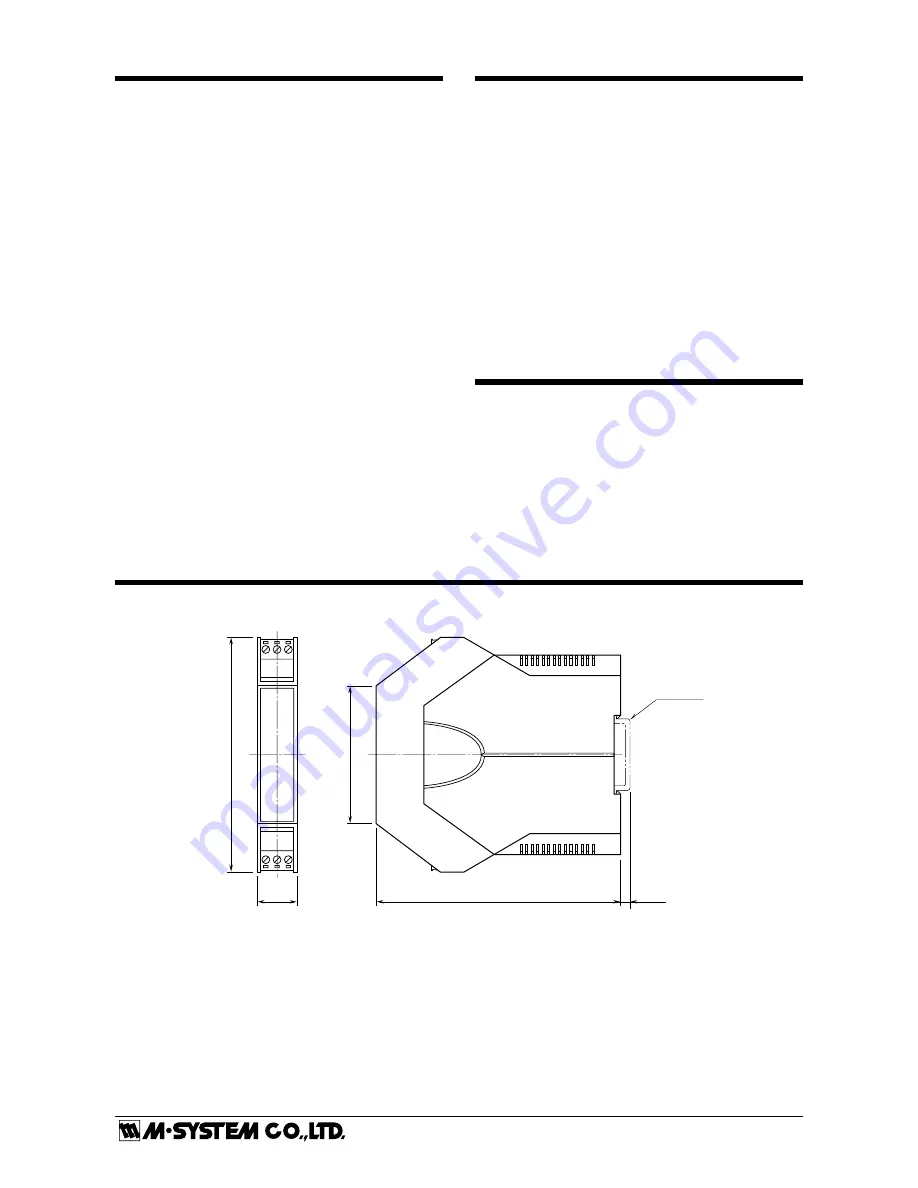
B3FR
P. 4 / 4
EM-7514 Rev.6
5-2-55, Minamitsumori, Nishinari-ku, Osaka 557-0063 JAPAN
Phone: +81(6)6659-8201 Fax: +81(6)6659-8510 E-mail: info@m-system.co.jp
ADJUSTMENT PROCEDURE
This unit is calibrated at the factory to meet the ordered
specifications, therefore you usually do not need any cali-
bration.
For matching the signal to a receiving instrument or in case
of regular calibration, adjust the output as explained in the
following.
■
HOW TO CALIBRATE THE OUTPUT SIGNAL
Use a signal source and measuring instruments of sufficient
accuracy level. Turn the power supply on and warm up for
more than 10 minutes.
1) ZERO: Apply 0% input and adjust output to 0%.
2) SPAN: Apply 100% input and adjust output to 100%.
3) Check ZERO adjustment again with 0% input.
4) When ZERO value is changed, repeat the above proce
-
dure 1) – 3).
MAINTENANCE
Regular calibration procedure is explained below:
■
CALIBRATION
Warm up the unit for at least 10 minutes. Apply 0%, 25%,
50%, 75% and 100% input signal. Check that the output
signal for the respective input signal remains within accu-
racy described in the data sheet. When the output is out of
tolerance, recalibrate the unit according to the “ADJUST
-
MENT PROCEDURE” explained earlier.
CHECKING
1) Terminal wiring: Check that all cables are correctly con
-
nected according to the connection diagram.
2) DIP SW setting: Check that the switches are set to ap
-
propriate positions.
3) Input: Check voltage across the terminal 4 – 5 with a
sensitive voltmeter.
(With 20°C or 68°F, approx. 110 mV with Pt 100, approx.
140 mV with Ni 120, approx. 10 mV with Cu 10.)
If the RTD or its extension wires are broken, the output
goes over 100% (below 0% with downscale protection)
due to burnout function. Check leadwires in such a case.
4) Output: Check that the load is within the permissible
limit including wiring resistance.
Supply Voltage (V) – 12 (V)
Load Resistance (Ω) = ––––––––––––––––––––––––
0.02 (A)
(including
leadwire
resistance)
5) When you check the output signal, connect an ammeter
of which the internal resistance is of 10 Ω max. to the
monitor terminals.
EXTERNAL DIMENSIONS
mm (inch)
10 11 12
4
5
6
106 (4.17)
18 (.71)
110.5 (4.35)
62 (2.44)
[5 (.20)]
DIN RAIL
35mm wide
• When mounting, no extra space is needed between units.






















